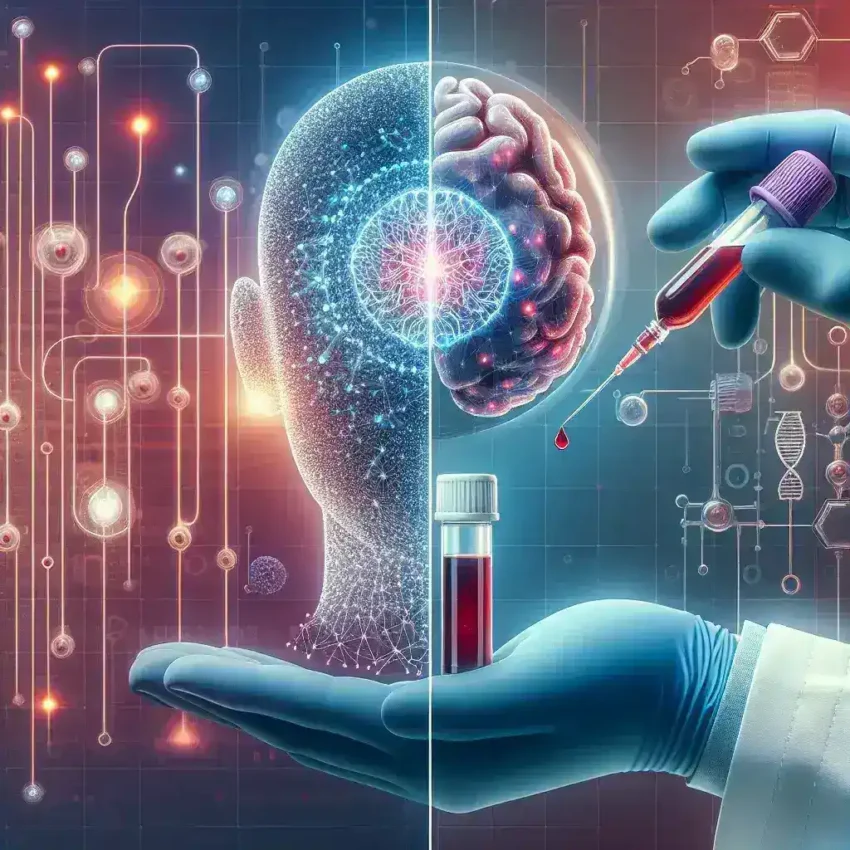Understanding Depression: A Brief Overview
Depression affects millions worldwide, manifesting in various forms and intensities. Traditionally understood through psychological evaluations and self-reports, the pursuit for objective measures has gained momentum. In recent years, scientific advancements have illuminated the potential of biological markers—specifically, blood samples—to reveal the physiological underpinnings of this complex mental health disorder.
The Role of Biomarkers in Mental Health
What Are Biomarkers?
Biomarkers are measurable indicators of biological processes or conditions. In the context of depression, they help to identify the presence and severity of the disorder by analyzing physiological changes within the body. These markers can take various forms, including proteins, lipids, and nucleic acids found in blood or other biological samples.
Importance of Blood Samples
Blood samples as a medium for detecting biomarkers offer several advantages:
- Non-invasive: Unlike other sampling methods (e.g., cerebrospinal fluid), blood draws are less invasive and more comfortable for patients.
- Accessibility: Blood tests can be conducted in most healthcare settings, making them widely accessible.
- Potential for early detection: Identifying biomarkers early can lead to timely interventions, improving patient outcomes.
AI Technology in Identifying Biomarkers
The Intersection of AI and Medical Science
Artificial intelligence (AI) has transformed various industries, and healthcare is no exception. AI algorithms analyze vast datasets for patterns that may be imperceptible to human observers. Specifically, in the realm of blood biomarkers for depression, AI tools help in:
- Data Analysis: Processing large volumes of data from diverse populations to identify consistent biomarkers.
- Predictive Modeling: Creating models that can predict the likelihood of depression based on biomarker profiles.
- Personalized Medicine: Developing tailored treatment plans based on an individual’s specific biomarker profile.
How AI Tools Work
AI tools employ machine learning, a subset of AI, where algorithms learn from data inputs to improve their accuracy over time. In the context of blood biomarkers for depression:
- Data Collection: Blood samples are collected and analyzed for various biomarkers.
- Feature Selection: AI algorithms identify which biomarkers are most predictive of depression.
- Model Training: The selected biomarkers are used to train predictive models on known cases of depression.
- Validation: Models are validated against new data to ensure reliability and accuracy.
Research Advancements in AI and Biomarkers
Recent studies highlight the potential of AI tools in identifying blood biomarkers for depression:
A Case Study: Using AI for Biomarker Discovery
In one notable study, researchers utilized AI algorithms to analyze blood samples from individuals diagnosed with major depressive disorder (MDD). The study identified several biomarkers, including inflammatory markers and metabolites, which could differentiate depressed patients from healthy controls with high accuracy.
Statistical Evidence
Research indicates that AI tools can achieve up to 90% accuracy in predicting depression based on biomarker profiles. This level of precision is significantly higher than traditional diagnostic methods that rely solely on self-reported symptoms.
Pros and Cons of AI Tools in Depression Diagnosis
Advantages
- Efficiency: AI can analyze data faster than human researchers, expediting the identification of potential biomarkers.
- Consistency: AI tools provide consistent results, reducing the variability seen in human assessments.
- Scalability: AI systems can be scaled to process large datasets, making them suitable for population-wide studies.
Challenges and Considerations
- Data Quality: The effectiveness of AI tools depends on the quality and diversity of the data used for training.
- Ethical Concerns: There are concerns regarding privacy, consent, and the potential for bias in AI algorithms.
- Integration into Clinical Practice: Transitioning from traditional diagnostic methods to AI-driven approaches requires significant changes in healthcare infrastructure.
The Future of AI in Mental Health
Predictions and Trends
As AI technology continues to evolve, its integration into mental health diagnostics is expected to grow. Future trends may include:
- Enhanced Personalization: AI will facilitate more personalized mental health treatment plans based on individual biomarker profiles.
- Real-Time Monitoring: Wearable technology may allow for continuous monitoring of biomarkers, providing real-time data to clinicians.
- Collaboration Across Disciplines: The intersection of neuroscience, psychiatry, and AI will lead to innovative approaches in understanding and treating depression.
Conclusion
AI tools are paving the way for a new paradigm in identifying biomarkers of depression through blood samples. This journey, from understanding the complexity of depression to leveraging advanced technology, holds the promise of improving diagnostic accuracy and treatment outcomes. As research continues to unfold, the future of AI in mental health appears brighter, offering hope for those affected by this pervasive disorder.

